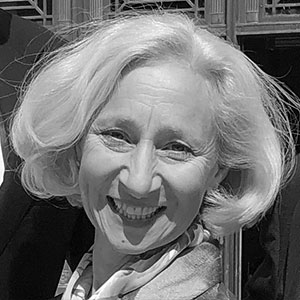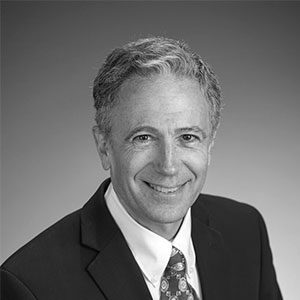created equal
CLARENCE THOMAS IN HIS OWN WORDS
UNPRECEDENTED ACCESS.
THE STORY YOU DIDN’T KNOW.
WHY THIS FILM ?
Although Clarence Thomas remains a controversial figure, loved by some, reviled by others, few know much more than a few headlines and the recollections of his contentious confirmation battle with Anita Hill.
With unprecedented access, the producers interviewed Justice Clarence Thomas and his wife, Virginia, for over 30 hours of interview time, over many months. Justice Thomas tells his entire life’s story, looking directly at the camera, speaking frankly to the audience. After a brief introduction, the documentary proceeds chronologically, combining Justice Thomas’ first person account with a rich array of historical archive material, period and original music, personal photos, and evocative recreations. Unscripted and without narration, the documentary takes the viewer through this complex and often painful life, dealing with race, faith, power, jurisprudence, and personal resilience.
As the times changed, Thomas began to rebel against the values of his grandfather. Angered by his fellow seminarians’ racist comments following the assassination of Martin Luther King, Jr. and disillusioned by the Catholic Church’s general failure to support the civil rights movement, Thomas left the seminary. His grandfather felt Thomas had betrayed him by questioning his values and kicked Thomas out of his house. In 1968, Thomas enrolled as a scholarship student at the College of the Holy Cross in Massachusetts. While there, he helped found the Black Student Union and supported the burgeoning Black Power Movement.
Then, Thomas’s views began to change, as he saw it, back to his grandfather’s values. He judged the efforts of the left and liberals to help his people to be demeaning failures. To him, affirmative action seemed condescending and ineffective, sending African-American students to schools where they were not prepared to succeed. He watched the busing crisis in Boston tear the city apart. To Thomas, it made no sense. Why, he asked, pluck poor black kids out of their own bad schools only to bus them to another part of town to sit with poor white students in their bad schools?
At Yale Law School, he felt stigmatized by affirmative action, treated as if he were there only because of his race, minimizing his previous achievements. After graduating in 1974, he worked for then State Attorney General John Danforth in Missouri, eventually working in the Reagan administration, first running the Civil Rights Division of the Department of Education and then the Equal Employment Opportunity Commission. In 1990, he became a judge on the U.S. Court of Appeals for the District of Columbia Circuit.
In 1991, President George H.W. Bush nominated Clarence Thomas to the Supreme Court. His confirmation hearings would test his character and principles in the crucible of national controversy. Like the Bork hearings in 1987, the Democrats went after Thomas’ record and his jurisprudence, especially natural law theory, but also attacked his character. When that failed, and he was on the verge of being confirmed, a former employee, Anita Hill, came forth to accuse him of sexual harassment. The next few days of televised hearings riveted the nation. Finally, defending himself against relentless attacks by the Democratic Senators on the committee, Thomas accused them of running “a high-tech lynching for uppity blacks who in any way deign to think for themselves, to do for themselves, to have different ideas.” After wall-to-wall television coverage, according to the national polls, the American people believed Thomas by more than a 2-1 margin. Yet, Thomas was confirmed by the closest margin in history, 52-48.
In his 27 years on the court, Thomas’s jurisprudence has often been controversial—from his brand of originalism to his decisions on affirmative action and other hot button topics. Critical journalists often point out that he rarely speaks in oral argument.
The public remains curious about Clarence Thomas—both about his personal history and his judicial opinions. His 2007 memoir, My Grandfather’s Son, was number one on The New York Times’ bestseller list.
In addition to the two-hour feature length documentary film, a companion website providing more details and curriculum materials will be created and available. The website will draw on the over thirty hours of interviews of both Justice Thomas and his wife, most of which did not appear in the film.
TRAILER
FILMMAKERS

GINA CAPPO PACK
Executive Producer
Gina Cappo Pack serves as the President of Manifold Productions. Mrs. Pack’s background is in development and film promotion, corporate management, marketing, and personnel. Her early skills and experience as a corporate executive have lent direction to Manifold Productions, while helping to maintain an efficient use of resources. She has contributed to a variety of Manifold film projects since 1987, through fundraising, promotion, management, and as an executive producer.

MICHAEL PACK
Producer/Director
Michael Pack is the founder and former President of Manifold Productions, Inc., an independent film and television production company, in business since 1977. Through Manifold Productions, Mr. Pack has written, directed, and produced numerous award-winning nationally broadcast documentaries as well as corporate and educational films.

FAITH JONES
Editor
Faith Jones has been editing award winning documentaries for more than 30 years. A native New Yorker, Faith graduated with a BFA from New York University School of the Arts, then cut her teeth in narrative features, learning the craft of picture and sound editing on multiple theatrical films such as “The Untouchables” “Things Change”, Crocodile Dundee II, and “Coming to America”. Faith has edited dozens of television documentaries for CBS, ABC, PBS and major cable channels. She worked for several years at the acclaimed Long Form Unit at ABC News, editing award winning docu-series, “Hopkins”, “Boston Med” and “NY Med”. Faith received an Emmy nomination for Outstanding Individual Achievement in Editing for her work on ”Boston Med”.
HOW TO WATCH
Sign up for our newsletter for updates on streaming in Fall 2020
Created Equal: Clarence Thomas in His Own Words |
|||
|---|---|---|---|
| Limited DVD sales are now available | |||
| Home use $29.99 plus S/H |
|||
| Institutional use $149.99 plus S/H |
|||
| For educational or organizational use, contact [email protected] | |||
| PBS Broadcast May 18th, 2020
Limited theatrical run January 31 – March 15 2020 |
|||
PRESS & NEWS
CONTACT US
GET UPDATES
Sign up with your email address to be notified when DVDs and streaming
are available.
created equal
CLARENCE THOMAS IN HIS OWN WORDS
Questions? Check our FAQ
Are you a member of the media? Check our Media Page










